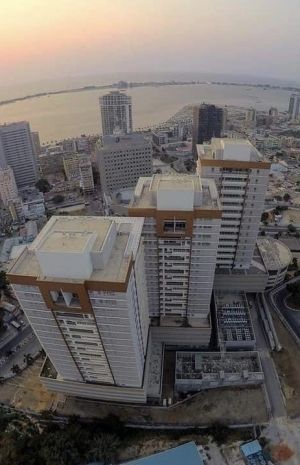
The Angolan government was forced to suspend the repayment of bilateral unsecured debts to avoid “default”. The IMF considers the initiative positive, but the fundamental problem remains, which is the country’s inability to generate wealth.
In October 2020, the Economist Intelligence Unit (EIU) considered the suspension of Angola’s debt repayment to China a good initiative, but warned that more financial assistance was needed to avoid ‘defaults’ in the future. Analysts at The Economist cautioned
This assessment of the Angolan public accounts and the need for further pauses in debt payments proved accurate, as exemplified by the request made by the Ministry of Finance last week to sovereign partners to suspend the payment of bilateral unsecured debt between July 1 and December 31 this year. According to the department, led by Vera Davies, this outage will save three billion dollars.
The Angolan government argues that this measure will help mitigate the consequences of the COVID-19 pandemic and increase the ability to further develop and implement its long-term program for sustainable economic growth for the country.
The problem is in the forked paths
In addition to this argument, it is reasonable for Angola to rely on the support of the International Monetary Fund (IMF). “Angola’s decision to request an extension of debt relief under the Debt Service Suspension Initiative (DSSI) until December of this year is positive,” Antoinette Sayeh, deputy executive director of this body said in the statement announcing the IMF. Under the expanded financial programme, US$772 million will be disbursed immediately to assist Angola.
The International Monetary Fund commends the “robust” policies implemented by the Angolan authorities that allow debt sustainability, but there remains a great deal of uncertainty about the future. Oil revenues continue to dwindle and foreign investment remains a mirage.
“The outlook for the global economic recovery shows a divergent path between a two-level recovery or a K-shaped recovery.” [queda rápida com uma subsequente recuperação diferenciada], with the developed world and some emerging markets doing very well when it comes to recovery, while some from the developing world and low-income countries lag behind. The diagnosis was voiced last weekend by the Director-General of the World Bank, Ngozi Okonjo-Iweala, on the sidelines of the G7 summit and, in essence, indicates a slowdown in recovery in Latin America and Africa, especially due to the uneven distribution of vaccines to combat COVID-19.
In other words, on the cost side, Angola is making the necessary adjustments, but the increase in revenue capable of pulling the economy out of the doldrums may be too late, which will put more pressure on public accounts. The country is still in recession and negative growth and the goal is to stay in recession this year. This is clearly an insufficient goal, and puts more pressure on the government and the MPLA itself, given the general elections next year.

“Wannabe internet buff. Future teen idol. Hardcore zombie guru. Gamer. Avid creator. Entrepreneur. Bacon ninja.”
